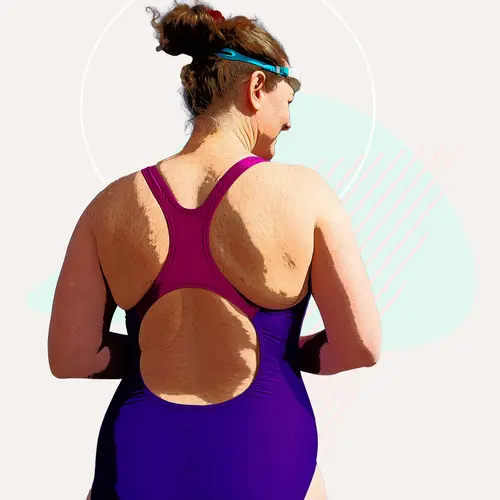Can I Treat the Pain on My Own?
There are several things you can do to relieve pain from a herniated disk or degenerative disk disease.
At first, take it easy, and avoid any activities (such as sports or heavy lifting) that worsen your neck pain. You can also use ice the first 24 to 48 hours to ease swelling and pain. Wrap the cold source in a towel first to protect your skin, and leave it on for about 20 minutes at a time. After this period, apply heat to the area to help relax sore and stiffened muscles.
You can also do simple stretching exercises to keep your neck flexible and reduce stiffness.
Over-the-counter pain relievers such as acetaminophen or nonsteroidal anti-inflammatory medications (NSAIDs) such as aspirin, ibuprofen, and naproxen can help. Ask your doctor which type is best for you. Read the labels carefully and check with your doctor if you feel like you need to use them often.
When Should I See a Doctor
Call your doctor if your neck pain is intense or lasts for more than a couple of weeks.
If the pain gets worse, or you have numbness or weakness that goes into your shoulders, arm, or hand, see a doctor immediately. The doctor will ask you about your medical history to find out how long you've had the pain and what activities help or worsen the pain.
You may need tests such as an X-ray, MRI, or CT scan to see what the problem is and exactly where it’s located.
Would Physical Therapy Help?
A physical therapist can check on the tissues and joints of your neck to help you reduce pain and get better range of motion.
Physical therapists sometimes use a technique called neck traction, which gently pulls the head to open up the spaces between disks and ease pressure on the affected disk and nerve.
During your sessions, your physical therapist can show you safe and effective exercises, and help you with your posture.
How Long Will It Take to Recover?
Recovery times vary from person to person. It depends in part on the extent of the problem and the type of treatment you're using. For most people, medication or physical therapy will improve their symptoms within about 3 months.
When Would I Need Surgery?
You might be a good candidate for surgery if your neck pain is severe and hasn't gotten better after a few months of treatment, or if you have pain, numbness, or weakness in your shoulders, arms, or hands. Most people don’t need it, though, because other treatments work.
If you do need surgery, there are many types of disk replacement and fusion surgeries to treat a herniated disk or degenerative disk disease. How well you do after surgery will depend on your age, diagnosis, and the type of procedure you have.
For most people, the surgery works. But it’s possible to develop a herniated disk disease above or below the disk that bothered you before you had surgery.
What New Treatments Are on the Horizon?
There are several implantable artificial disks available for cervical disk replacement surgery. The FDA approved the first implantable artificial disk for cervical disk replacement surgery. An artificial disk may ease pain while preserving range of motion in the neck.
Scientists are also looking at ways to slow or even reverse the degenerative process to help protect disks from damage before it happens.
What Can I Do to Prevent Another Injury?
To help prevent future neck problems, stretch your neck regularly. Also, try to do aerobic exercise such as walking, swimming, or biking for at least 30 minutes on most, if not all, days of the week. If you smoke, quit.
Pay attention to your posture. Always hold your neck straight and keep your back well-supported.

